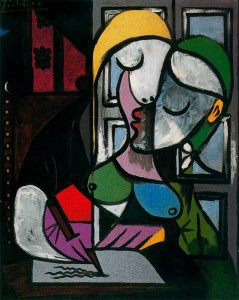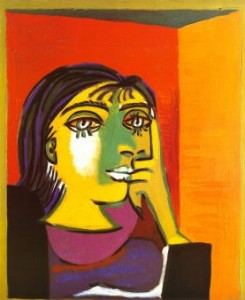
I went to bed before midnight last night. But I didn’t get to sleep until around 1:30 or 2:00 a.m. Insomnia usually produces frustration, but something different was at work this time. I was hungry. Not physically. My mind was hungry. I’ve been restless for about a month now. Sometime during the weekend I figured it out: I haven’t been writing since I began to query literary agents for my novel, about a month ago. Writing is what I do. No wonder I’ve been restless. Even depressed.
It’s not that I’m always happy, or even peaceful, when I’m writing. As my friend and fellow Memphis writer, Ellen Morris Pruitt says in her blog post today, about creative synthesis:
Creativity is such a lovely concept. The word embodies a time of intense focus on what is being born, unbridled by concern for what the other thinks of the coming creation. Peace.
But later in the process, she says we experience something other than peace:
The whirring wind, the noise and confusion—that’s the Spirit spreading across the face of the water at the dawn of time.

But I like the noise and, yes, even the confusion that sometimes accompanies the act of creation. Or at least I prefer them to emptiness and too much quiet. And so I write. It’s my work. But sometimes, it’s also therapy.
Writing as therapy isn’t a new idea, but there are lots of takes on it. This morning I read a long article by Ritu Khanna, a psychologist in private practice in New Delhi. The English translation is bumpy at times, but there are some interesting points to consider here. I’ll just share a few.
Writing is a meditation: it settles the mind. It is a de-stressor: it releases tension. It is like a confessor who keeps your secrets safe. It is also a mood-changer, with the capability of making you happy. It is an outlet, for it helps you let go of your negative thoughts. It is creative, cathartic, curative.
 But, as I wrote in this post in Writer’s Digest last year, writing has to be more than confessional if it’s going to be art. I like these quotes from Khanna:
But, as I wrote in this post in Writer’s Digest last year, writing has to be more than confessional if it’s going to be art. I like these quotes from Khanna:
Writing is a spiritual quest, it is the soul searching for truth.
And one more:
Like birth, a book begets hope, it is also a new beginning. It is the writer’s search for answers, an almost involuntary act that enriches both the writer and the reader, for reading is certainly a therapy.
A book begets hope. Even a short story can beget hope, right? Today I am hopeful.
I’m in sympathy with your plight. The best medicin is to get back to writing.
Yes, Richard! Thanks for reading, and commenting.